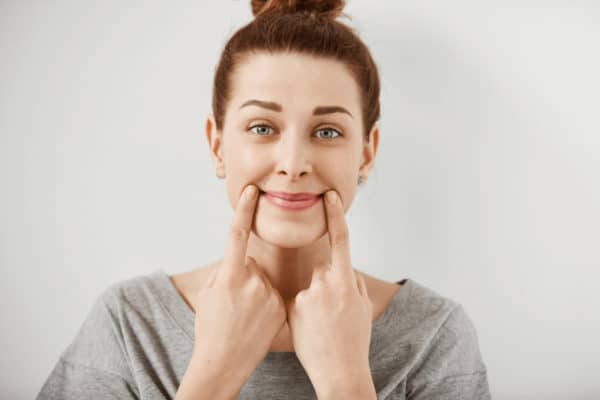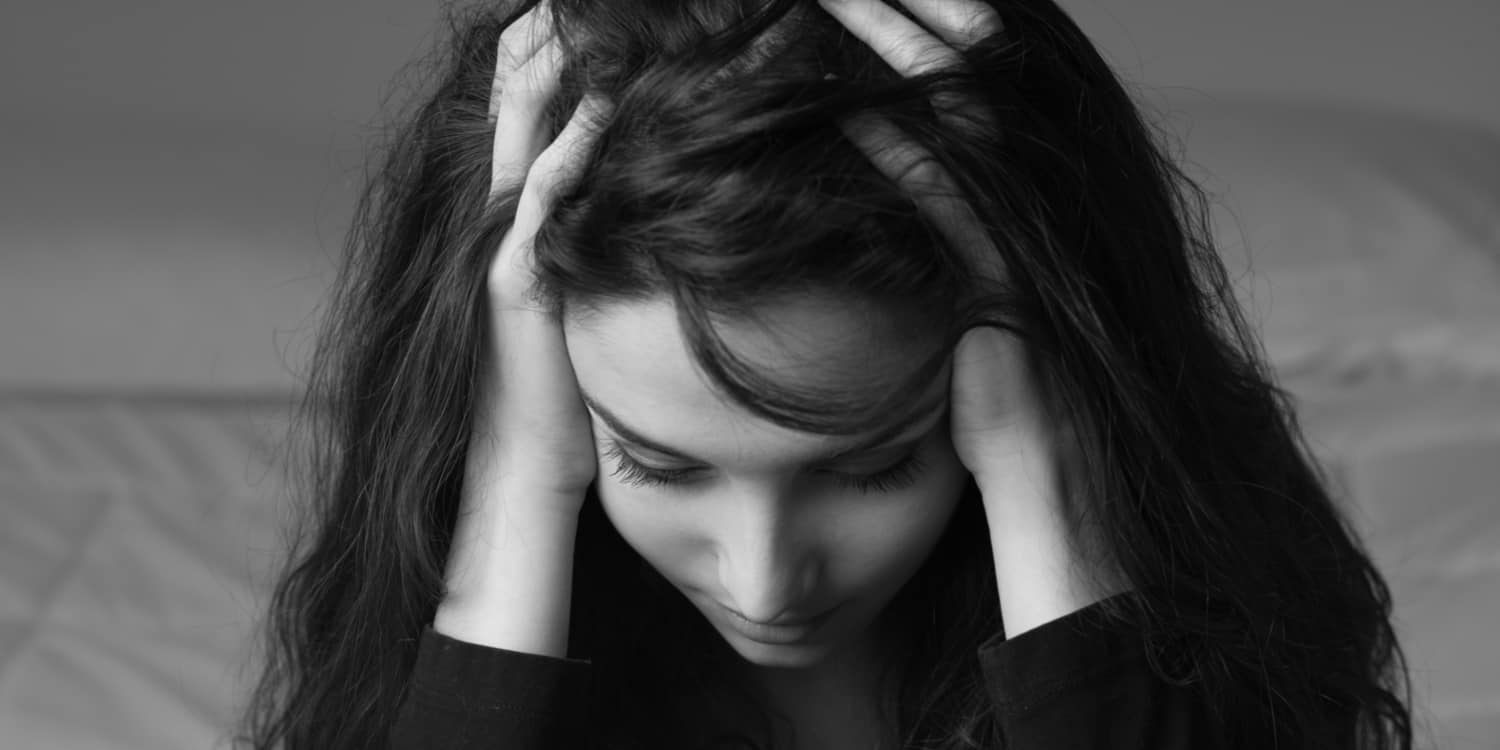We asked our readers what they feel is their biggest problem with acne. Surprisingly, for many it is not the acne itself, but the emotional consequences of having your face covered with pimples. It affects your self-esteem. It makes you anxious and reluctant to leave your home to go to work or social events.
Frustration is one of the big things acne makes you feel. It so frustrating that no matter what you do, pimples keep appearing out of nowhere. But acne can also inspire a host of other feelings – sadness, embarrassment, anger and even hopelessness. All negative emotions that affect your body image.
Stress and emotional responses are largely involuntary and often the best you can do is try to control the damage afterwards. Practices like meditation can over long term change your habitual reactions, but this takes time and effort to achieve.
In addition to finding ways to heal acne, we at Acne Einstein want to discuss how to lessen the emotional burden of having acne. How can we fight this acne anxiety? We know there is no easy solution, but over the years we have published different articles on the importance of relaxation, the right kind of breathing, positive thinking, acceptance, meditation and even yoga.
We’ve decided to sum them up and write a guide on different methods to fight you acne anxiety. Each section will have a link to the original article, if you want to read a more thorough version of it.
1. Breathe yourself happy
Just take a deep breath and you will feel better. I’m sure this sounds familiar to most of us. Is there any truth behind this advice?
Most of us actually don’t breathe the right way. We spend too much time sitting, which forces our bodies and organs into unnatural positions. As a result, we tend to breathe through our chest, when we should be breathing through our stomachs.
Some studies show that different emotions are associated with different breathing patterns. This means that people breathe differently if they are angry or happy. Could this mean that if you deliberately change your breathing pattern, you also change your mood? Research suggests – yes.
If you manage to match your breathing pattern to the one associated with happiness, you start feeling happier. There is a signature breathing pattern associated with each emotion. The pattern for joy is to slowly and deeply breathe and exhale through the nose. The breathing should be very regular and your rib cage relaxed.
Breathing alone will most likely not cause massive shifts in your emotional state nor cure your depression. But if done regularly, it starts shifting your emotional states, giving you some control over your emotions and breaks the hold that stress or negative emotions might have on you.
More tips on how to breathe yourself happy from the original article!

2. Gratitude exercises
Regular gratitude exercises have shown to have a consistent positive effect on emotional health and well-being. You can see results with as little as 2 minutes per day.
Permanent changes in happiness levels are notoriously difficult to achieve. People seem to have a baseline level of happiness, that’s largely determined by genetics. Changes in circumstances, like a new job, marriage or winning the lottery, cause temporary changes to happiness levels, but after 6 months people tend to return to their baseline happiness level.
Luckily, research shows that intentional activities can have long-term positive effects on your emotional state. Gratitude exercises are shown to work even when people have genuine reasons for being dissatisfied with their lives. These exercises have proven to make you feel happier, more satisfied with your life, feel more optimistic and more connected to others, sleep more and even exercise more.
So take 2 minutes and try to think of 3 things in your life that you are grateful for and write them down. But if you want it to work, you should pay attention to what you are doing and try to really feel the warmth and gratitude. You can find out more details from the original article.
3. Self-compassion and acceptance
“Do unto others as you would have them do unto you”
Already the bible said it, treat others the way you want to be treated. Ergo, don’t treat yourself the way you wouldn’t treat anybody else. But this is where most of us fail. Why is it so difficult to be kind to yourself?
Self-compassion is the act of feeling the same empathy for yourself, that you feel toward others. Unfortunately, even the most empathetic people often fail to see themselves worthy of the same compassion they so willingly feel for others. Society already tells us to focus on others, rather than on ourselves – we wouldn’t want to be self-centered right?
Being compassionate to yourself is often wrongly described as feeling self-pity, although it is more about being kind to yourself. Why should you demand and expect so much more of yourself than of others? Unrealistic demands of perfection will only end up hurting you.
Us acne-sufferers often wish to have a flawless skin. But to be honest, ignoring all the photoshopped images we are bombarded with, nobody has flawless skin. Except maybe my 8-year-old niece. Another faulty thought of ours is that if we only would do something more, we could get rid of our acne. As if acne would be something toxic that needs to be purified from our bodies.
But having acne does not mean that you are broken, nor a failure. You can’t live your life thinking this way and be happy. A quest to be perfect or flawless in any way, can only lead to bad things. So how can you be more compassionate towards yourself?
Practicing self-compassion is one of those things that is easier said than done. But we will give you a few tips on how to get started. First, have a look at yourself in the mirror and imagine that you see a stranger looking back at you. What would you think? Would you tell him or her that her skin looks awful today, she should try this ultimate cleansing diet? Or would you perhaps think that this person has a really nice smile, looks kind, has beautiful eyes or maybe great hair?
Try to be mindful and aware of the feelings and thoughts you have. Some emotions are more obvious than others, like sadness. But try observing your emotions through an objective lens, acknowledge them, separate yourself from it and move on. For instance if you feel sad that your skin is once again covered with pimples. It is OK to feel sad, do not try to minimize the emotion. They are pimples, they make you feel sad, but you can move on. It is just one emotion, it does not control you.

If focusing on self-compassion feels too hard, try focusing on self-growth. Instead of worrying about fixing yourself, focus on growing as a person. If you are not really broken to begin with, you can’t be fixed. You are good enough, that’s the message you should try to convince yourself to believe in.
Once you are on the path of self-compassion, stay the course. If you find yourself falling back to old patterns of thinking and behaving, acknowledge it and stop. Try to see your acne for what it really is, a common inconvenience.
More on self-compassion and acne, click here.
4. Be present
We hear this all the time, be present, seize the moment, enjoy the little things life offers.
But we have a million things on our minds, who doesn’t. There is work, I just need to finish this one little report by tomorrow and also need to water my neighbors plants, but somebody is texting me again and I forgot to feed the cat yesterday – or did I? Oh, and I totally forgot to listen to what my friend is telling me on the other side of the table, again.
I admit it, my mind wanders all the time. Unfortunately, research suggests that people are much happier when they focus on the present moment. Even worse, when the mind starts wandering, most people actually get significantly unhappier. How often a person’s mind wanders, and what they think about when it does, might actually be more significant to our happiness than for instance how much money we earn. You can read more details on the study from our original article.
The results of the study have a logical explanation. When our mind wanders, it tends to gravitate toward things that stress or worry us. In other words, the wandering mind focuses more often on negative things, than on positive things.
In a nutshell, try to live in the moment as much as possible. Meditation might work to reach this goal, but I think you can start by changing small things in your daily habits. Try practicing being present during idle moments of the day. Maybe you read a book when you commute to work, listening to podcasts during your morning run or take your phone with you to the toilet.
How about instead you try to just be there, present in the moment. Try to empty your mind of other things and just passively observe things and sounds around you. Use these moments to wind down and relax your mind. Maybe while you’re at it, you could also leave your phone aside for a while, nothing bad usually happens if you don’t answer that text the same second your phone pings.
5. The upside down view of emotional theory
We are used to thinking that actions follow emotion, we are happy – so we smile. But what if this relationship could be reversed, could smiling actually make us feel happy?
In his book “Rip It Up” Richard Wiseman argues that when it comes to emotions, we’ve put the cart before the horse. The relationship between emotions and actions have been repeatedly studied in emotional theory. Do you smile because you feel happy, or are you happy because you smile?
Modern psychology agrees that behavior causes emotions, but it’s now believed to be more of a two way street. So you smile because you feel happy, but you also become even happier because you smile.
This effect is not limited to real and natural actions, even forced facial expressions create real emotions. Behaving as if you are experiencing an emotion not only influences how you feel, but also has a powerful effect on your body. Actions such as singing and dancing also makes you feel happier.

You should try it, force a grin on your face by pulling the corners of your mouth towards your ears. Make the smile as wide as possible and try to ensure that your cheeks move upwards and create some wrinkling at the base of your eyes. Finally, lift your eyelids a bit and hold that expression for 20 seconds. Relax your face and think about how you feel.
But the other side of the story is, that limited mobility and facial expressions limit your emotional experiences. That’s why some studies show that emotional responses are weaker after having Botox injections.
How can we use this information to our advantage, to get rid of our anxiety? One way is trying to reinterpret the physical action in question. Next time you feel signs of anxiety, stop and think about it. Remind yourself that this is just a conditioned response from your body. Research on panic attacks show that just by getting patients to reinterpret the physical symptoms differently, quells panic attacks. We’ve discussed these studies further in our original article.
To get rid of your anxiety, you need to change your behavior. Don’t try to hide yourself, stand confidently, look up and put a fake smile on your lips. It will feel odd, but behaving confidently is not compatible with feeling anxiety, so bit by bit your emotions will align with your behavior. In other words – Fake it until you make it!
6. Learn to relax
Relaxation is the antidote to anxiety, and acting as if you are relaxed helps you feel relaxed. You can teach yourself how your body feels when it’s relaxed and learn how to relax it on command. You can achieve this by trying different breathing exercises or by trying a progressive muscle relaxation technique.
It is important for you to learn to relax on command. This way you can reteach your brain how to behave in situations that produce anxiety and diffuse anxiety. As you do it over and over again, you will eventually break the conditioning.
In conclusion
All that self-blame and feelings of shame and embarrassment that acne causes, do nothing but cause extra stress for you. A stressed body is a breakout-prone body. From our experience, anxiety and stress are among the most destructive consequences of having acne. They can literary take control of your life and modify your behavior. So why not try some of these tips we mentioned above, even if they might feel silly at first.
Besides, you can only be truly free from acne, once you refuse to allow it to control your life. People with clear skin can still suffer from acne anxiety and a fear of it coming back. That’s why fighting acne related anxiety, self-compassion and accepting being just human, is the only path to true freedom from acne.



Not one of the photos used in the above article uses a model who has acne! All have very clear acne-free skin, not one spot amongst them!! This posting, is about self-acceptance, compassion for the self etc WITH acne. Staying in the PRESENT, with our acne. Ironic… Are people with acne not suitable for modelling purposes? Why not show the faces of people WITH acne on here!!
Hi Charlotte, thank you for comment. I’m Mia and I was responsible for finding images for this article and you are absolutely right. This is a acne related website and preferably all of our images would be of people with acne. Unfortunately we have access to a very limited stock of images and although they have photos of acne, they don’t tend to be what we are looking for. Meaning that most of them are of women, with one red pimple on her face and she is pointing at it with a horrible, faked expression. We don’t want to share this way of thinking, that you should be horrified if/when you get a pimple or use a photo that is only focused on her having pimples. Previously I’ve found only one photo of a smiling, confident and happy woman with acne, which wasn’t somehow focused on pointing out that she has pimples. I’ve used that same image already too many times, which is why I didn’t use it here. But I will continuously try to search our image bank for more photos of natural, confident people with acne. Hopefully this would be a more familiar sight in the future!
Hello,
I have sent a message and I have sent an email to the address located on the website. I have received no response. I was just wondering what is a good way to talk to someone about acne concerns?